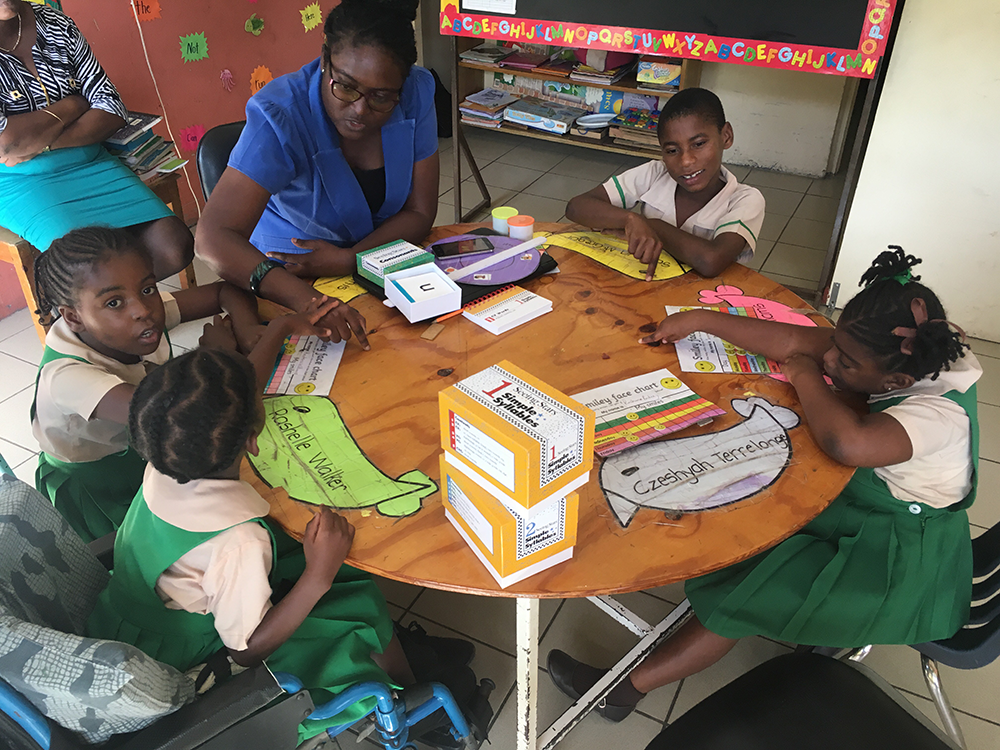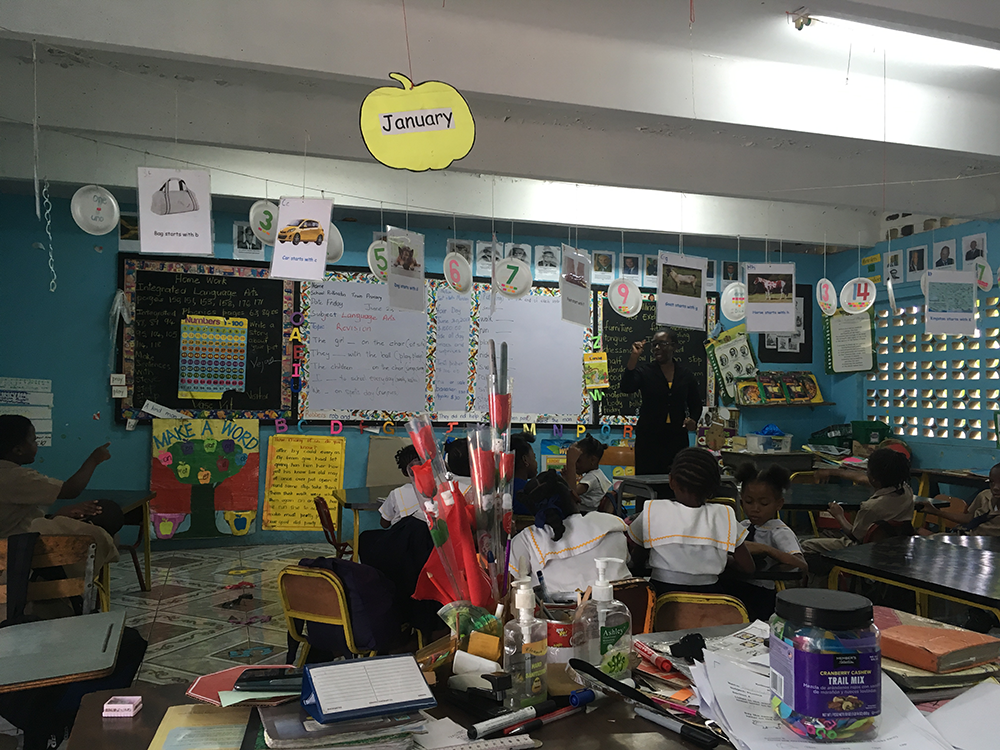Accomplishments
Providing professional development in research validated methodologies for the early identification and support of children with language-based learning disabilities.
Ninety early childhood and special needs teachers from 43 basic, primary and preparatory schools across the island have been trained to identify and effectively teach students with language-based learning difficulties.
The programme is in its second year having been initiated in 2017. Fifty teachers from 24 schools participated last year and in 2018, 40 educators from an additional 19 schools received coaching, materials and kits. In addition, the 2017 teachers continued their development as local instructional leaders – with the ability to assess students and share strategies with their colleagues.
The professional development was initiated by Mandy Melville, the founder of Creative Language-Based Learning with training provided by Lindamood-Bell Learning Processes®.
Lindamood-Bell® is an American company that has been imparting this know-how for over 30 years. The workshops, which are usually only available overseas and at a cost out-of-the-reach of the average Jamaican, offered a unique opportunity for special needs teachers who practice in the area of language-based learning disabilities to further develop teaching strategies.
Mrs. Melville advised that the ultimate goal is to develop an island-wide network of early childhood and special needs teachers who are able to meet the needs of students with language-based learning challenges. With Lindamood-Bell Learning Processes®, teachers are trained in the early identification of language-based learning disabilities and how to provide systematic, research-based intervention. “Teachers are equipped with the correct tools to tackle these deficits using process-based instruction,” she said.
Future Plans
Our short-term objective is to enable our participating teachers to leave the programme and immediately implement what they have learnt. In the long run, we want the resulting professional learning community of hundreds of early childhood and special needs teachers across the island to be fostered: creating a local collaborative support network to create an independent, sustainable, system-wide response to the intervention model across Jamaica.
The selection of teachers who participate in Lindamood-Bell workshops is key, as the expectation is that they will become instructional leaders when returning to their jobs. They will then be able to effectively implement process-based instructions across tiers and grades within their school upon their return, alongside sharing strategies and resources with colleagues.
Our professional development has the potential to contribute to the development of all teachers within a team or school by generating conversations among teachers about concrete acts of teaching and student learning. School wide implementation allows for sustainability as the methodologies are communicated across teams and grades.
Long Term Certification
As participants in the Lindamood-Bell® workshops, educators will not only learn from the Seeing Stars® and Visualising & Verbalizing® programmes; but are able to progress and eventually become programme leaders. To achieve this, they pass through four stages- Instructional Excellence, Pacing and Planning, Data Analysis and finally Mentor stage.
Once mentors and instructional leaders, these educators possess a mastery of techniques; can plan and implement targeted, effective lesson planning; interpret data effectively; have the ability to observe sessions analytically; and provide feedback in a positive manner.
The end goal is to have an Instructional Leader at each school or region, so they can regularly monitor and advise colleagues and peers.
About Us



Enabling educators to support all young learners with reaching their potential, regardless of learning styles or learning challenges
The Creative Language-Based Learning objective is to develop an island-wide network of early childhood and special needs teachers skilled in diagnosing the impact sensory cognitive deficits have on a child’s learning ability and tackling these deficits with process-based instruction. The goal is to enable educators to support all young learners with reaching their potential, regardless of learning styles or learning challenges.
Background
Citing a survey conducted by Dr Barbara Matalon in collaboration with the World Bank, Mrs. Melville noted that an estimated 15-20% of Jamaica’s population, or one in every five students, has a language-based learning disability that may include problems with listening, reasoning, speaking, reading, writing and math calculations and problem solving.
“Dyslexia is the most common of the language-based learning difficulties, accounting for 70-80% of people with poor reading skills,” Mrs. Melville advised. She added that without early identification and effective intervention, the negative impact of language-based learning disabilities could have significant and long-lasting effects on the individual and society at large. “The devastation caused by crime and violence in a society is often rooted in overlooked learning disabilities,” she said.
The workshops were funded by the CHASE Fund and facilitated by the Sandals Foundation. The CHASE Fund has been supporting interventions in the early childhood education sector for 15 years and has begun to place more emphasis on training teachers to better provide for special needs students. The training was fully endorsed by the Ministry of Education, Youth and Information as an opportunity for teachers to be able to reach those students who struggle with learning to read using the traditional methods.
With CHASE financing, educators were provided with the necessary instructional kits and materials and having completed the programme were able to begin implementation immediately upon returning to their classrooms.
With glowing testimonials from teachers and children alike, alongside significant instructional gains, the programme is already a huge success.
SOCIAL MEDIA
